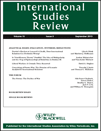(Journal Article) Abstract: An important recent development in the discipline of International Relations (IR) has been the growing interest in the national schools and “non-core” theorizing. Even though this interest is fully justified, we argue that the tendency to describe all such schools as invariably promising and helpful in overcoming the Eurocentrism of the discipline is misguided. It originates in the false assumption that the infinite diversity of collective experiences throughout the world can only be approached on the basis of epistemological pluralism. We explore the confusion between the ontological and epistemological aspects of the problem by looking at the state of international studies in Russia. The development of Russian IR is defined by a controversy between pro-Western transitological approaches and the dominant relativist position centered around the doctrine of multipolarity. The latter is translated into the epistemological domain, leading to a totally counterproductive assertion that “Western” science is unable to understand Russia's specificity. […]
International Studies Review, Volume 15, Issue 3, pages 328–350, September 2013
See the Article (subscription required) | © John Wiley & Sons, Inc.











